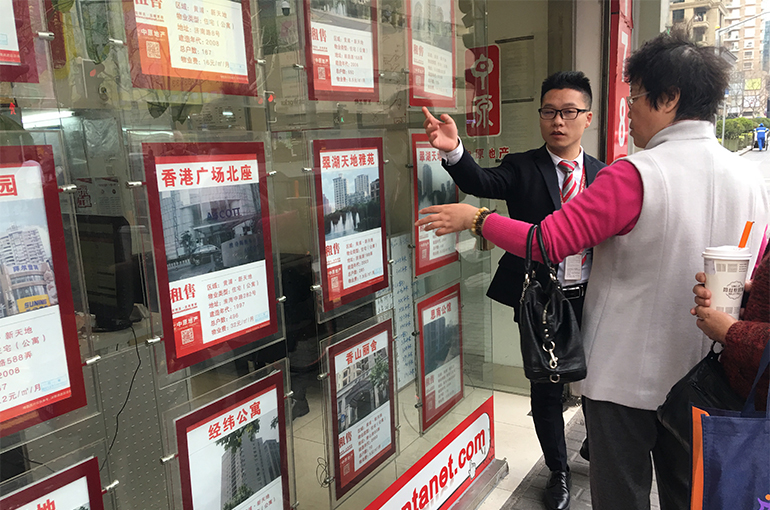 China's Property Market Picks Up in October Amid Stimulus Push, NBS Data Shows
China's Property Market Picks Up in October Amid Stimulus Push, NBS Data Shows(Yicai) Nov. 20 -- The price of pre-owned apartments in eight large Chinese cities climbed last month from the previous month, an improvement from no such increases in September, as the country’s real estate market rallies following the roll out of a raft of stimulus measures in October, according to the latest data.
The price of pre-owned homes climbed in the four first-tier cities, namely Beijing, Shanghai, Guangzhou and Shenzhen, for the first time in 13 months, according to a survey by the National Bureau of Statistics released on Nov. 15 that polled 70 medium-sized and large municipalities.
In Shanghai, 22,000 second-hand apartments changed hands last month, a 63 percent jump from September.
There is now less room for negotiation regarding the prices of second-hand homes in first-tier cities, Lu Wenxi, a senior analyst at Shanghai Centaline Property Agency, told Yicai.
Many home owners marked up their prices in October, indicating that there is a major shift in the market trajectory, Lu said.
In the past two years, it was not uncommon for the price of properties in prime locations to be slashed by millions or even tens of millions of Chinese yuan, equivalent to hundreds of thousands to millions of US dollars, a realtor dealing in high-end properties in Shanghai said. But such price cuts have become less frequent in the last month or two.
Market sentiment in the property sector is improving, according to the NBS’ October poll. The number of real estate agents who believe that the price of new homes will remain stable or rise surged 17.6 percentage points from the September survey to 75.6 percent, while those who hold the same view for second-hand homes soared 15 percentage points to 60.4 percent.
Time will tell if the real estate market has returned to stability, insiders said.
From past experience, there is usually an explosive jump in sales after the release of real estate stimulus policies, Lu said. This time round the spike is likely to extend into the first half of December, after which sales are likely to slow. January and February are traditionally off-season months for the real estate market, he added.
Editors: Shi Yi, Kim Taylor